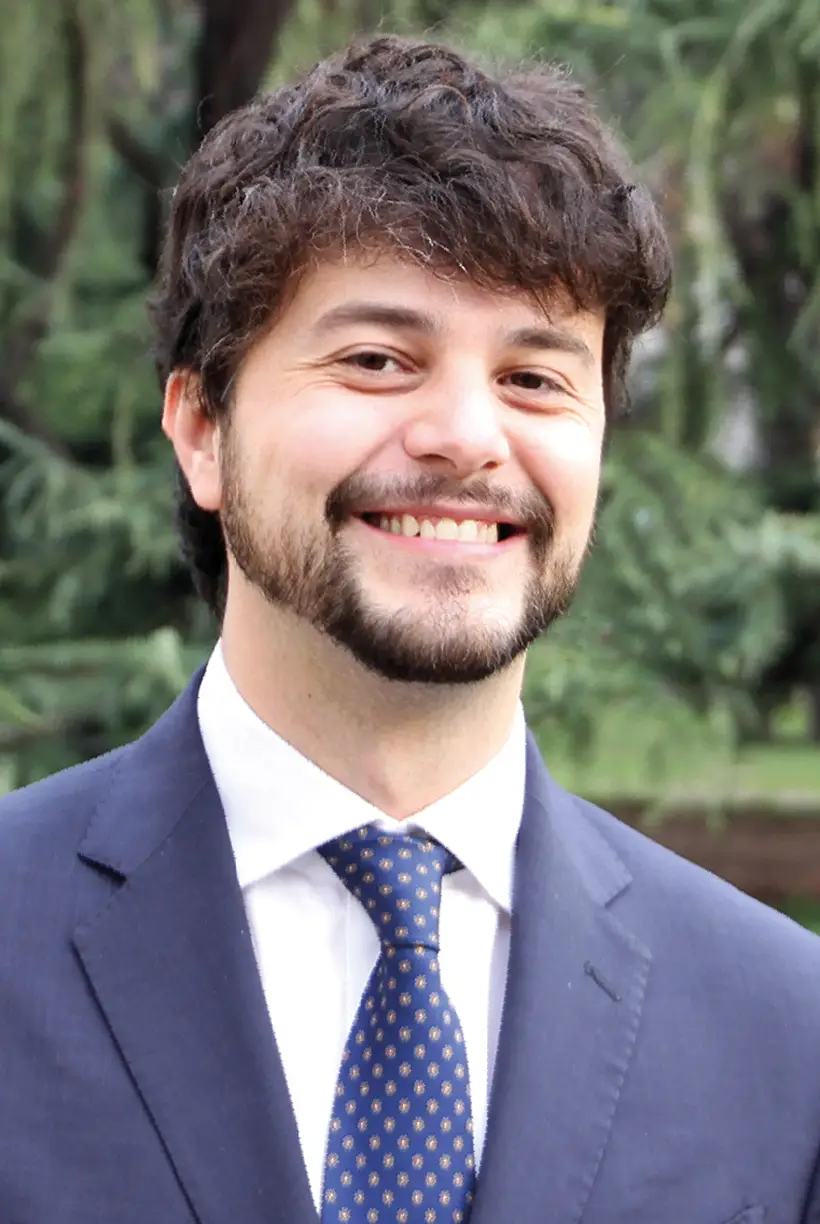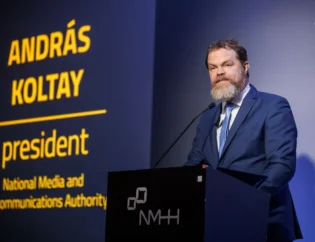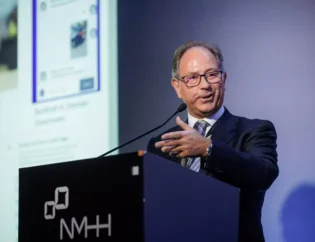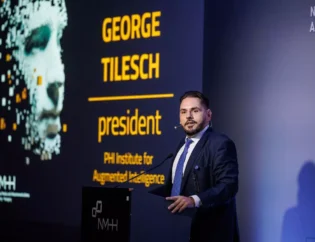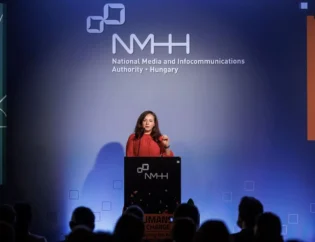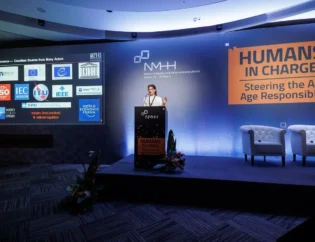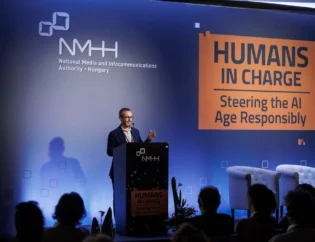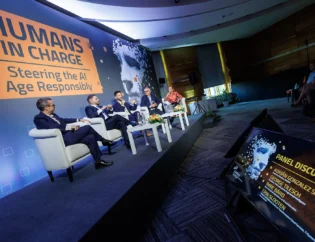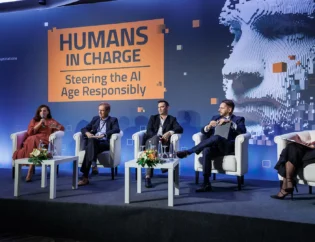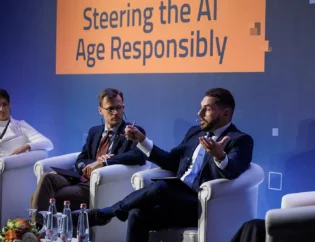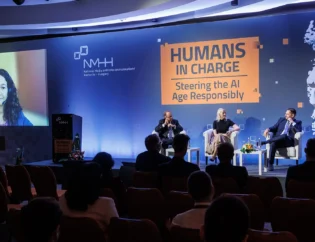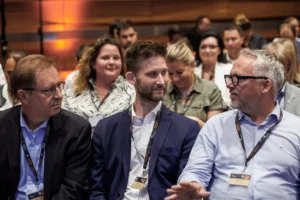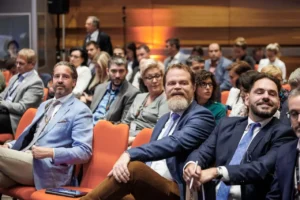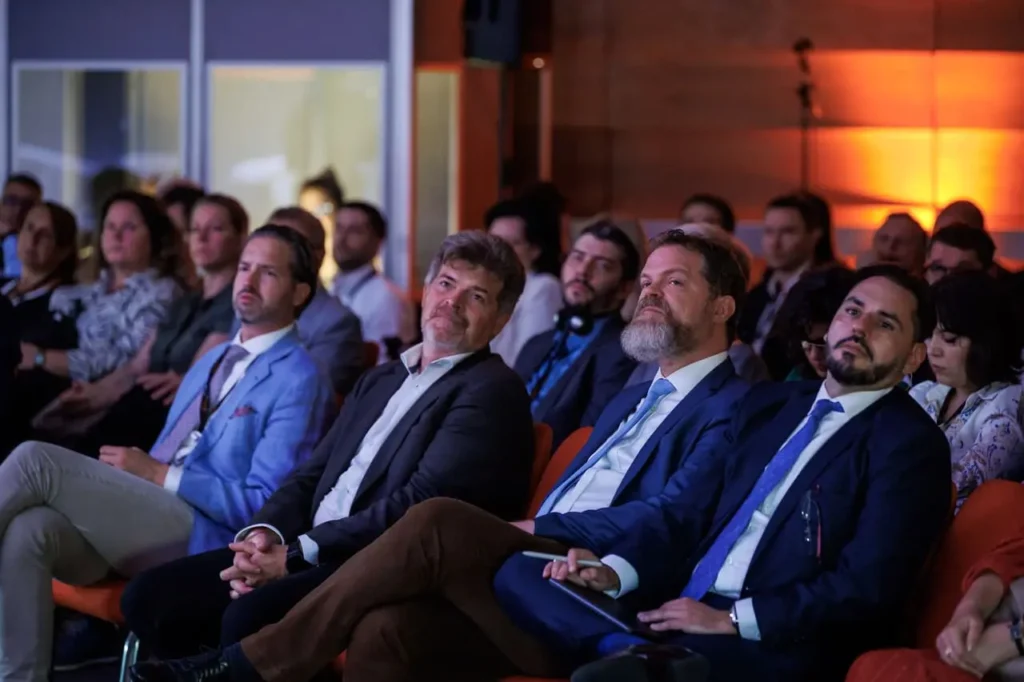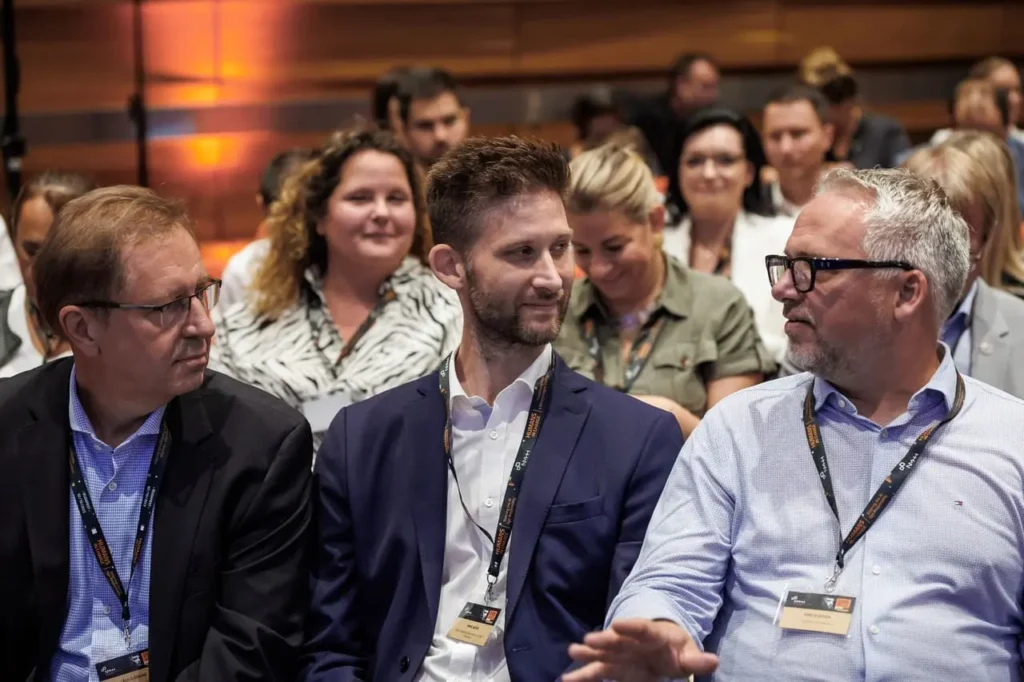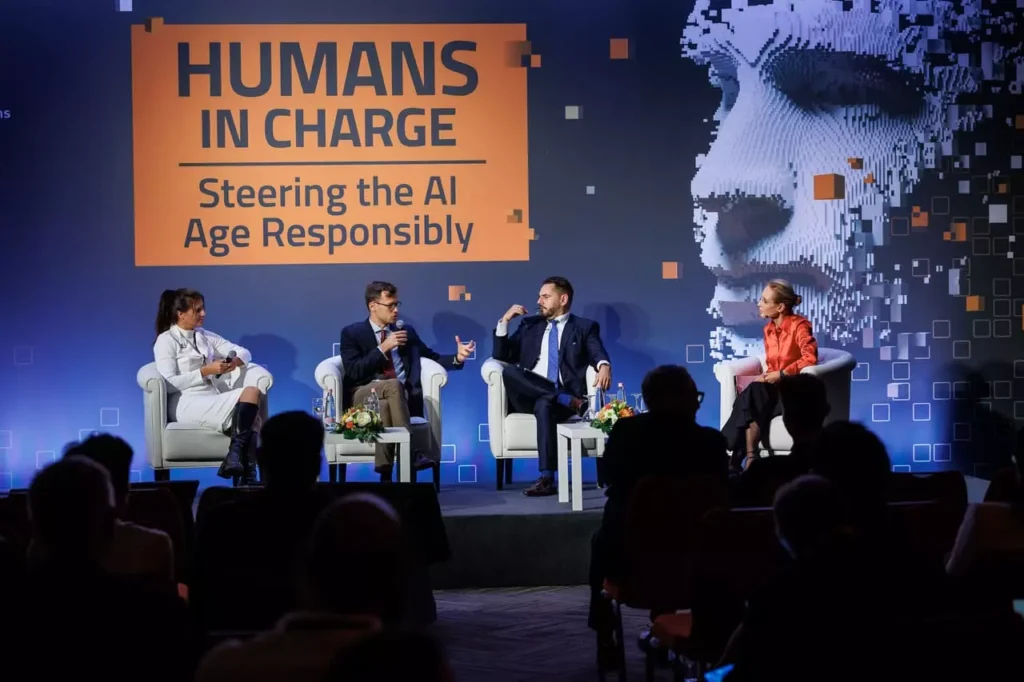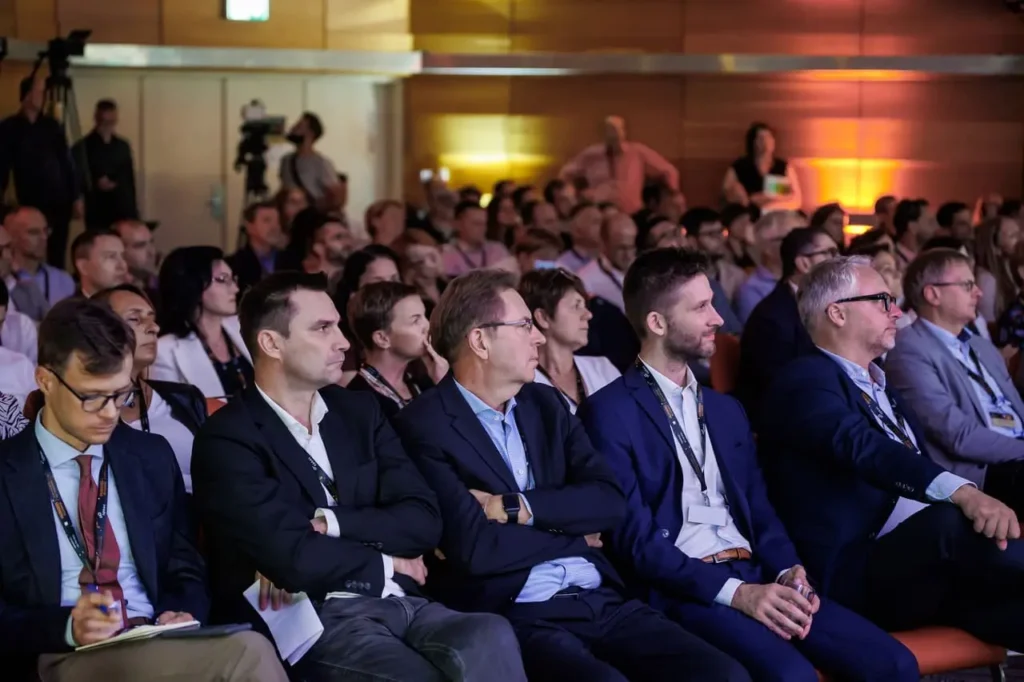Brando Benifei MEP on the draft AI Act of the EU
Brando Benifei, Italian Member of the European Parliament and co-rapporteur of the EU’s Artificial Intelligence (AI) Act, spoke live via video link to the conference participants. He said that the title of the NMHH conference “Humans in Charge – Steering the AI Age Responsibly” encapsulated perfectly what they wanted to achieve with the new Community legislation: a set of human-centred rules that allow strong human oversight, minimise risks and promote the reaping of the benefits.
Regarding the state of play of the legislative process, Benifei mentioned that negotiations were ongoing with Member State governments in the Council of the European Union to reach an agreement and create the world’s first regulation to address the risks the use of artificial intelligence entails in a horizontal way and to encourage the exploitation of its potential.
“In fact, the rationale behind the AI Act stems from a very obvious question. We must avoid fragmenting the EU market of artificial intelligence. We need a common market in artificial intelligence, which means we need common legislation to avoid each Member State creating its own,” he noted.
High-risk cases of use of artificial intelligence
“Our general approach has been to work on risk mitigation: to identify the risks associated with the entry of AI into our society and our lives,” Benifei continued, “resulting in a so-called risk pyramid which includes the riskiest instances of use, those that pose intolerable and pointless risks. A risk is pointless when it is not outweighed by a fairly clear positive impact on our society. We have therefore identified areas and cases of use where we want to explicitly prohibit the use of artificial intelligence.”
He cited a few examples:
- the use of AI in public places, for surveillance camera systems capable of biometric identification;
- AI-assisted recognition of emotions of students and workers;
- the use of artificial intelligence for preventive police actions.
High-risk cases of use that should be regulated include cases where social, welfare or civil rights are at risk, where AI is used to profile or screen job-seekers, where use concerns critical digital infrastructure, or where the healthy development of children or processes affecting democracy are at stake.
Where content is produced by artificial intelligence, it should be clearly identifiable
MEP Benifei specifically noted the challenges of content creation using artificial intelligence.
He said that the European Commission and the European Parliament both wanted such content to be recognisable. Actually, they have one more goal in mind...
“We want to support content creators, artists, creative specialists who get nothing when the asset they produce is used to teach AI. We also want to fight disinformation that is overrunning legitimate content.
When will this become law and how will it be introduced?
Brando Benifei also expressed his hope that the final vote on the AI Act would take place in early 2024, and then its gradual introduction and application could begin. But there is something else as the Commission would like to speed things up.
“We hope that many organisations, developers and institutions will join the so-called AI Pact initiative which we are launching together with the Commission to enable gradual compliance until the act fully enters into force,” the politician explained (see also: EU, Google to develop voluntary AI pact ahead of new AI rules, EU’s Breton says).
AI and the race for economic power
According to Brando Benifei, some areas require further standardisation.
“We need a fully integrated capital market. We need more corporate investment in digital infrastructure at the European level. We need more joint research. We need a critical mass if we are to compete with China and the US,” he stressed adding that more training and support should be given in the world of work to help the sectors affected by the new technology prepare for making the necessary transition.
This speaker
Brando Benifei
Member of the European Parliament, EU AI ACT Co-Rapporteur
Brando Benifei is an Italian MEP serving his second term and is the Head of Delegation of Partito Democratico in the European Parliament.
He is Rapporteur for the Artificial Intelligence Act, as a Member of the Committee for the Internal Market and Consumer Protection.
In 2016 he was included by Forbes in its 30 under 30 to watch list.
More speakers


Axente



Erdelyi






Misuraca



Kriisa



Tilesch



Drajkó



Porkoláb



Halmos



Slooten



Bárd



Juhász



Benifei



